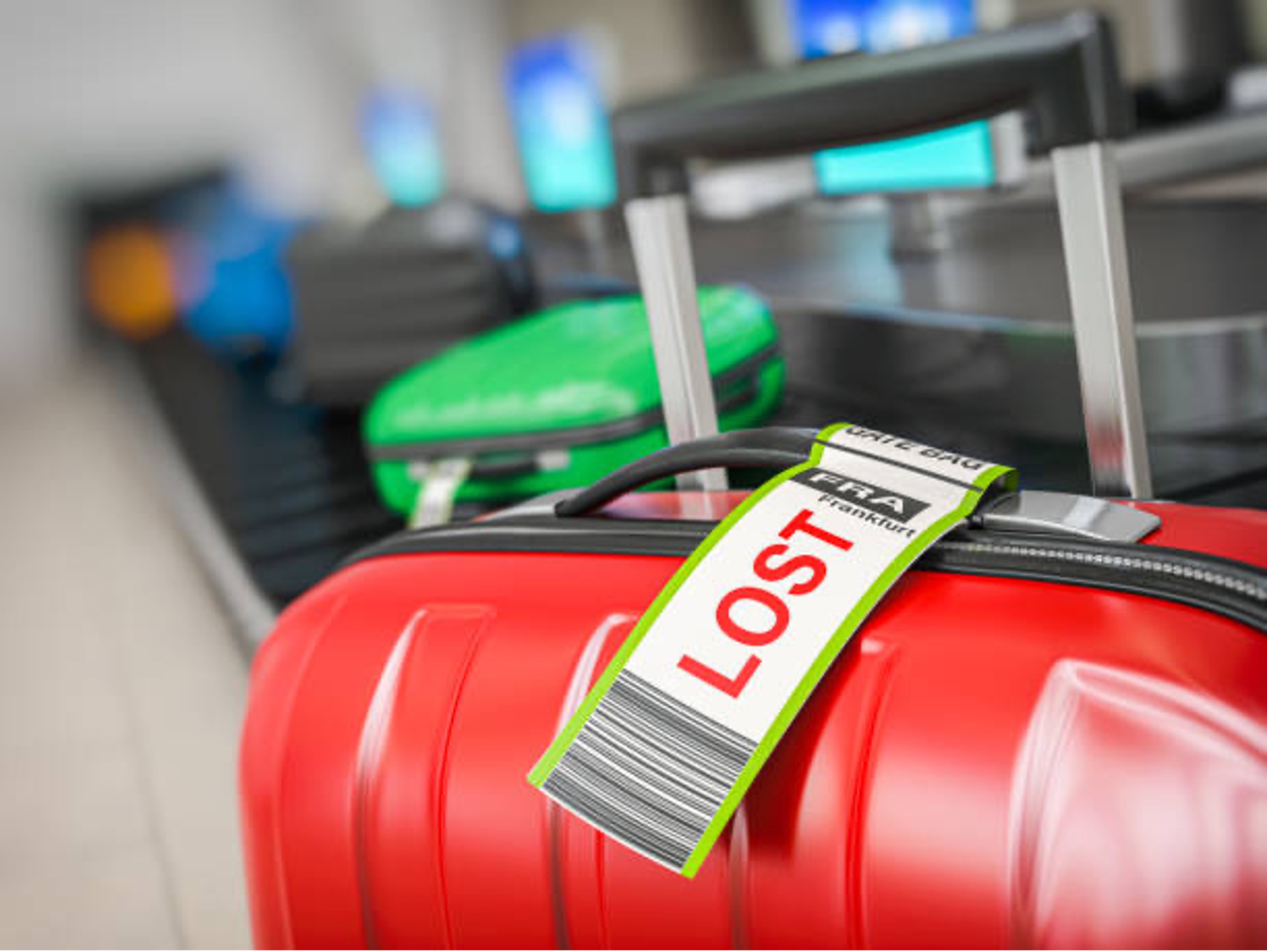How to avoid it and what to do if it happens.

Operational problems at airports worldwide this summer have meant, among other problems, a huge increase in the number of lost and delayed checked bags. Here’s how to minimize the chance and pain of it happening to you.
Before your trip:
1. Travel with carry-on bag(s) only.
Don’t want to lose your luggage? Don’t check it. Instead, pack essentials and items that can be hard to buy (medication and shoes, for example) in a carry-on and allocate what you would have paid in checked bag fees to shopping for what else you need at your destination. Plus, do you really want to spend hours waiting for your bag at the luggage carousal (or days while the airline attempts to find it)?
2. Only check items you can afford to lose.
Never put items you cannot afford to lose in checked luggage. That means no cash, electronics, jewelry, YOUR MOTHER’S ASHES (lost at Heathrow last month), etc. Pack in your carry-on a few items of clothing that can take you through a day or two at your destination in case of luggage loss or delay.
3. Put an Apple AirTag in each of your bags.
AirTags work. Put one inside each of your bags; you are then set to track their locations via your iPhone. Knowing your bag is on the (correct) plane before you are provides amazing peace of mind. Note: As an AirTag relies on the proximity of other Apple devices to track its location, the device works best in countries where lots of people carry iPhones and other Apple products.
If your bag is delayed, having an AirTag in it doesn’t necessarily mean you’ll get it any faster, but at least you have an excellent chance of knowing where it is. My cousin had an AirTag in her checked luggage when traveling from Paris to Phoenix with a stopover in Atlanta. While she made the flight from Atlanta to Phoenix, per the AirTag info, her luggage didn’t. After the Delta rep kept telling her the bag was in Paris, my cousin contacted a friend who lives in Georgia who then went to the Atlanta airport with a screenshot of the AirTag tracking info. Within thirty minutes, Delta “found” the bag and sent it to Phoenix for delivery to my cousin’s home.
4. Buy travel insurance.
This is the summer to buy travel insurance that covers lost and delayed bags. While several premium credit cards offer this coverage, often you must have paid for most, if not all, of the trip with the card in question. (Remember to check the fine print, including maximum trip length and coverage exclusions.)
If your bag(s) don’t show up:
1. File a Property Irregularity Report (PIR).
If your checked luggage does not arrive at your destination, go to your airline’s baggage office OR locate one of its Ground Handling Agents to file a Property Irregularity Report (PIR). While the airline rep may tell you that you may file the report later from your home/hotel, DO NOT LEAVE THE AIRPORT before filing the report and receiving a printed copy of it. This ensures you have the documentation necessary for filing a claim if the luggage is later deemed lost rather than delayed and you must file a claim (with the airline and/or travel insurance company) for reimbursement for lost items and necessary purchases. A PIR is filed with the airline that operated the last segment of your trip, even if you started your trip on a different carrier.
2. Buy what you need to travel comfortably.
I hate to say this, but airline reps can be less than truthful about lost and delayed bags. Your bag may not arrive on the next flight, despite the rep saying otherwise. (Currently, it is taking an average of two to three days, sometimes longer, for delayed bags to catch up to their owners.)
And the airline is responsible for more than the $50 to $100 a rep may quote you. You are entitled to buy the items you need for your trip; for example, a swimsuit if you are on your way to a beach holiday or a cruise, a suit if you are traveling to a business meeting. If your bag is ultimately deemed lost, your emergency purchases count towards the airline’s maximum liability of $3800 (domestic flights)/$1780 (international flights).
3. Monitor Worldtracer.
Airlines use a tool called WorldTracer to try to locate delayed and missing bags. WorldTracer operates globally, exchanging information among 2800+ member airports. The system tracks and follows baggage for up to 100 days.
Your Property Irregularity Report will contain a string of letters—the three-letter airport code (ex: DEN) plus the airline code (ex: AA)—followed by five numbers. Plug this identifier and your last name into the WorldTracer internet interface to bring up the info on your bag. You should be able to see if your luggage has been located or if tracing is still ongoing. Note: There can be a time lag; that is, even when WorldTracer shows tracing is continuing, your luggage can in fact can be on its way to its proper destination.
4. File a claim with the airline.
File a claim for your lost bag and/or expenses with the airline responsible for your last trip segment (which may not necessarily be the airline with which you checked your bag). If you have travel insurance, the claim process may require you to first file a claim with the airline. If the airline doesn’t pay or shortchanges your claim, you then file for reimbursement with the insurance company.
Twist’s Take: This is the summer of lost/delayed luggage. Check out these tips on how to avoid it happening to you (and what to do if it does).

